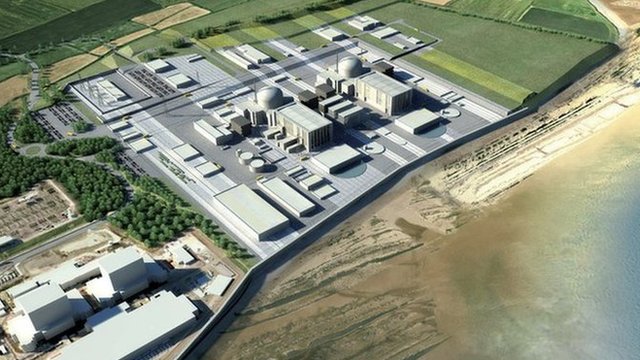 The German newspaper der Spiegel yesterday released a report showing that the current team of the European Commission is about to approve public support of astronomical value to finance the construction of the Hinkley Point power plant in the United Kingdom, putting the costs on taxpayers' shoulders. economic and environmental.
The German newspaper der Spiegel yesterday released a report showing that the current team of the European Commission is about to approve public support of astronomical value to finance the construction of the Hinkley Point power plant in the United Kingdom, putting the costs on taxpayers' shoulders. economic and environmental.
Without the opposition of the majority of European Commissioners in the vote that will take place on 8 October, just days before the current team will no longer exercise its functions, the European Union can, for the first time, “allow taxpayers to fund the construction of nuclear power plants in Europe”, denounces Quercus in a statement.
Austria has already reacted to this plan by threatening to take the case to the European Court of Justice, and European Commissioner Günther Oettinger has already described the planned plan for financing this plant as "Soviet".
Commenting on this leak, Andrea Carta, from Greenpeace EU, stated that “if this agreement is approved, the Commission still in office will leave Brussels in a getaway car after the heist of the century. Taxpayers will be obligated to pay for one of the most expensive nuclear power plants in the world and bear the costs if things don't go well, while EDF will pocket the subsidies."
“What is even worse is that they are trying to convey the impression that they are doing it in the name of climate change, guaranteeing support for nuclear power for decades at the exact moment when the big banking institutions are advising investors to bet on renewable energy. The European commissioners who will vote next week must think carefully about the threat that the next generations of Europeans are posing and put an end to this madness”, adds Andrea Carta.
The information disclosed, prepared by the still-functioning competition commissioner Joaquín Almunia, with the support of Commission President José Manuel Barroso, recommends that the project submitted by the United Kingdom be approved without changes.
However, in a preliminary response to the December 2013 submission, the Commission raised doubts about virtually every aspect of the project, stating that "support would, in principle, be inconsistent with EU rules on public support".
“The 180-degree turn from this initial statement is incomprehensible,” considers Quercus.
According to this environmental association, the document now revealed demonstrates its support “for the guarantee that EDF will sell the electricity produced at the plant at more than double the price charged for a period of time much longer than usual (35 years), with the possibility of revise the price upwards after 15 and 25 years, if the operating costs are higher than expected", "the State guarantee if the French operator responsible for the operation of the plant and its Chinese partners default"", "the an 'insurance' against future changes to UK policies on energy, nuclear power or the environment' and 'a commitment that conditions will not change even if there are delays of up to four years in the construction of the plant (it is planned that the construction lasts between eight to ten years)».
This document says nothing about EDF's responsibilities in relation to the treatment and final disposal of the resulting nuclear waste, "leaving the bill to the taxpayers to pay".
Nuno Sequeira, president of the Quercus National Board, stresses that “Durão Barroso is preparing to leave one of the worst legacies in the energy area, as he actively contributed to reducing support for renewable energies and energy efficiency, while promoting the support of public funds for the most polluting and less sustainable energy sources».
This support is “contrary to the interests of Portugal, which is trying to defend a goal for interconnections to be able to export renewable energy. This is the type of decision that increasingly distances European citizens from the European institutions, and if this proposal is approved on the 8th of this month, Durão Barroso, as President of the EC, will have contributed to a less sustainable and less cohesive Europe. A contribution that should shame any politician, particularly the one who is still the leader of the European Commission», concludes Nuno Sequeira.

















Comments